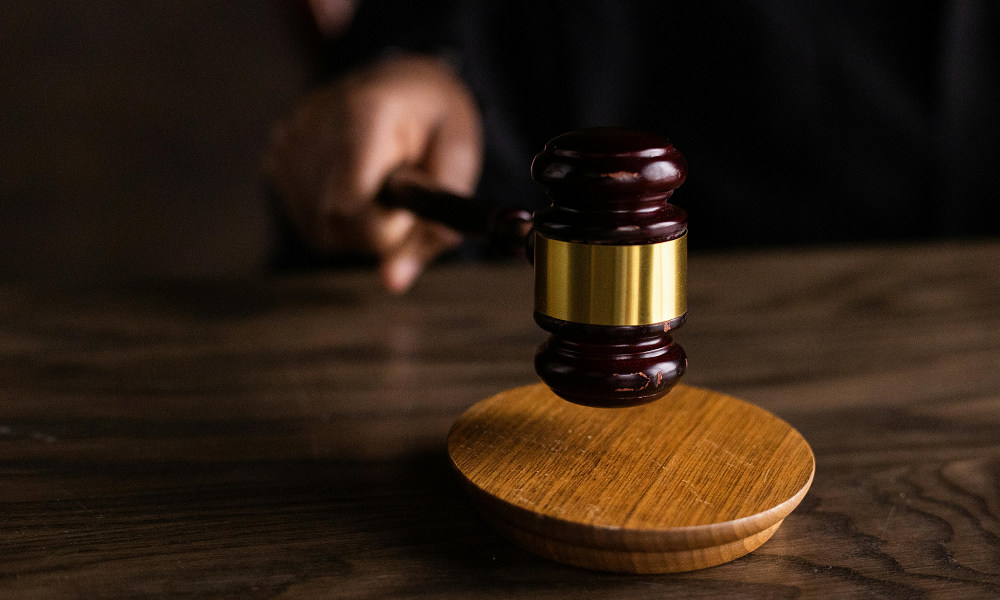Reviews
How to Handle False Accusations of Domestic Violence

Have you or a loved one been falsely accused of domestic abuse? It’s an extremely upsetting and sometimes stressful circumstance. You may ask yourself, “What should I do next?” False accusations can cause confusion and panic while harming relationships, careers, and reputations. The good news is that there are things you can do to protect yourself and you’re not alone.
Everything you need to know about dealing with false allegations of domestic abuse will be covered in this article. We’ll walk you through the process, explain your rights, and teach you how to take back control of your life using straightforward, conversational language.
What Are False Accusations of Domestic Violence?
When someone is falsely accused of committing abuse they did not commit, it is known as a false accusation of domestic violence. These accusations, which frequently have little to no supporting evidence, can involve claims of psychological, emotional, or bodily harm. One side may make such claims in order to obtain an advantage over the other in a contentious circumstance, such as a divorce, custody struggle, or personal conflict. A person’s reputation might be damaged, legal repercussions may follow, and emotional pain may result from being wrongly accused. It’s critical to respond to these accusations quickly and skillfully, frequently with the assistance of a domestic violence attorney who can help you navigate the court system, defend your rights, and assemble a compelling case. The first step to clearing your name and reducing the harm is to comprehend the nature of these charges.
Why Do False Accusations Happen?
Complex emotional or strategic motivations are frequently the source of false allegations. They occasionally come up during acrimonious divorces or custody battles, where one side may make up allegations to obtain an advantage, like getting exclusive custody of the kids. Others may fabricate accusations in retaliation, out of rage, or to damage the accused’s reputation. Baseless charges can sometimes result from misunderstandings or misinterpretations of events, particularly when emotions are running high. Rarely, recognizing the seriousness of the legal and societal repercussions, persons may use these accusations as a means of control or manipulation. The accused can take the necessary actions to defend oneself and successfully refute the allegations if they are aware of the motivations behind them.
Recognizing the Signs of False Allegations
Early detection of false accusations can help you defend your rights and respond appropriately. The abrupt emergence of charges during crucial times, such custody battles or divorce proceedings, when the accuser stands to benefit, is one of the most typical indicators. The accusations frequently lack strong supporting evidence or are based only on the accuser’s words without witness confirmation. If the accuser uses fabricated or inflated allegations to turn friends, relatives, or coworkers against you in an effort to isolate you, that is another warning sign. The accuser might also have a history of leveling similar charges against other people or they might describe the events inconsistently, displaying inconsistencies in their account. If you notice these warning signs, it’s crucial to document interactions and seek professional guidance to build a strong defense.
Immediate Steps to Take When Accused
Stay Calm and Avoid Confrontation
Reacting emotionally or confronting the accuser can worsen the situation. Maintain your composure and avoid any direct communication with the accuser to prevent misunderstandings or additional allegations.
Document Everything
Keep a detailed record of all interactions, dates, times, and conversations related to the accusations. Save messages, emails, or any other communication that might help refute the claims and provide evidence for your defense.
Seek Legal Advice Immediately
Consult an experienced attorney who can guide you through the legal process and ensure your rights are protected. They will help you understand the charges and develop a strategy to counter the allegations.
Avoid Public Discussions
Refrain from discussing the accusations on social media or with acquaintances. Public comments can be misconstrued and used against you, so it’s best to keep the matter private and focus on resolving it legally.
Follow Any Court Orders Strictly
If a restraining order or other legal directive is issued, comply with it fully, even if you believe it is unjustified. Violating court orders can complicate your case and lead to further legal consequences.
How to Work With an Attorney
When facing false accusations, collaborating effectively with a domestic violence defense attorney Beverly Hills is crucial for building a strong defense. Start by being completely honest and transparent about all details related to the case, even if some may seem insignificant or uncomfortable to share. Your attorney needs a clear picture to anticipate potential challenges and develop the best strategy. Provide any evidence you have, such as texts, emails, or witnesses who can support your side of the story. Stay proactive by asking questions and understanding the legal process, as this will help you feel more confident and prepared. Lastly, follow your attorney’s advice closely, especially regarding communication with the accuser or public statements, to avoid unintentional mistakes that could harm your case. With the right legal support, you can navigate this challenging time more effectively.
Clearing Your Name: What to Expect in Court
There are multiple steps involved in clearing your name in court, and each one calls for careful planning and concentration. Pretrial hearings are frequently where the process starts, and arguments to reject unfounded allegations or contest the admissibility of evidence can be made. Your lawyer will offer your defense during the trial, which could involve cross-examination of the accuser to point out contradictions in their account, witness testimony, or written evidence. It is your attorney’s responsibility to raise doubts by pointing out the dearth of reliable evidence, while the prosecutor must establish their case beyond a reasonable doubt. The accuser may be trying to influence the court, so be ready for emotional testimony. You can successfully refute these assertions, though, if you have a solid response and convincing proof.
Resources for Support and Assistance
Although dealing with unfounded allegations of domestic abuse can be lonely, there are a lot of services available to assist you in taking back your life. Legal aid organizations guarantee that you have access to skilled lawyers who can develop your defense by offering pro gratis or reasonably priced services. Community organizations and support groups provide a secure setting for you to interact with people going through similar things, share your story, and build emotional resilience. To manage the emotional toll and regain your confidence, think about getting counseling or therapy if the stress becomes too much for you. Additionally, advocacy groups and hotlines can offer prompt advice and connections to reliable experts. Keep in mind that the purpose of these materials is to strengthen you during this trying time so that you can clear your reputation and proceed with strength and dignity. You don’t have to face this battle alone—support is always within reach.

-

 Legal6 days ago
Legal6 days agoMichigan man JD Vance sentenced to 2 years for threatening Trump and JD Vance
-

 Politics1 week ago
Politics1 week agoU.S. to designate Maduro-linked Cartel de los Soles as terrorist organization
-

 Health7 days ago
Health7 days agoCambodia reports fatal H5N1 bird flu case in 22-year-old man
-

 World4 days ago
World4 days agoHurricane Melissa registered 252 mph wind gust, breaking global record
-

 Legal4 days ago
Legal4 days agoWoman in critical condition after being set on fire on Chicago train
-

 Politics7 days ago
Politics7 days agoEpstein survivors release PSA calling on Congress to release all files
-

 Legal4 days ago
Legal4 days ago1 dead, 2 injured in shooting at Dallas Walmart parking lot
-

 Legal3 days ago
Legal3 days agoSuspect in San Diego stabbing shot by authorities after fleeing into Mexico




